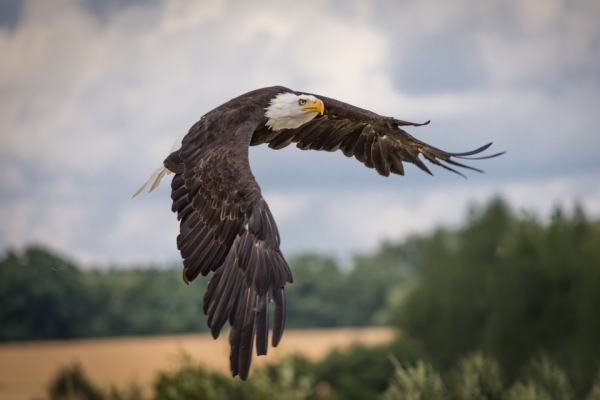Bald Eagles and dairy farmers exist in a mutually beneficial relationship in parts of northwestern Washington State. According to a new study, this "win-win" relationship has been a more recent development, driven by the impact of climate change on eagles' traditional winter diet of salmon carcasses, as well as by increased eagle abundance following decades of conservation efforts. The research is published in the journal Ecosphere.
"The narrative around birds of prey and farmers has traditionally been negative and combative, mainly due to claims of livestock predation," explained lead author Ethan Duvall in the Department of Ecology & Evolutionary Biology at Cornell University. "However, dairy farmers in northwestern Washington do not consider the eagles threats. In fact, many farmers appreciate the services that the eagles provide such as carcass removal and pest-deterrence."
Duvall, with collaborators Emily Schwabe and Karen Steensma from the University of Washington and Trinity Western University in Canada, conducted face-to face interviews with farmers on small, medium, and large dairy operations in Whatcom County to better understand this unique relationship. The study was motivated by Duvall's most recent research showing that eagles were redistributing from rivers to farmland in response to the declining availability of salmon carcasses during the past 50 years.
Read more at Cornell University
Photo Credit: Seaq68 via Pixabay


